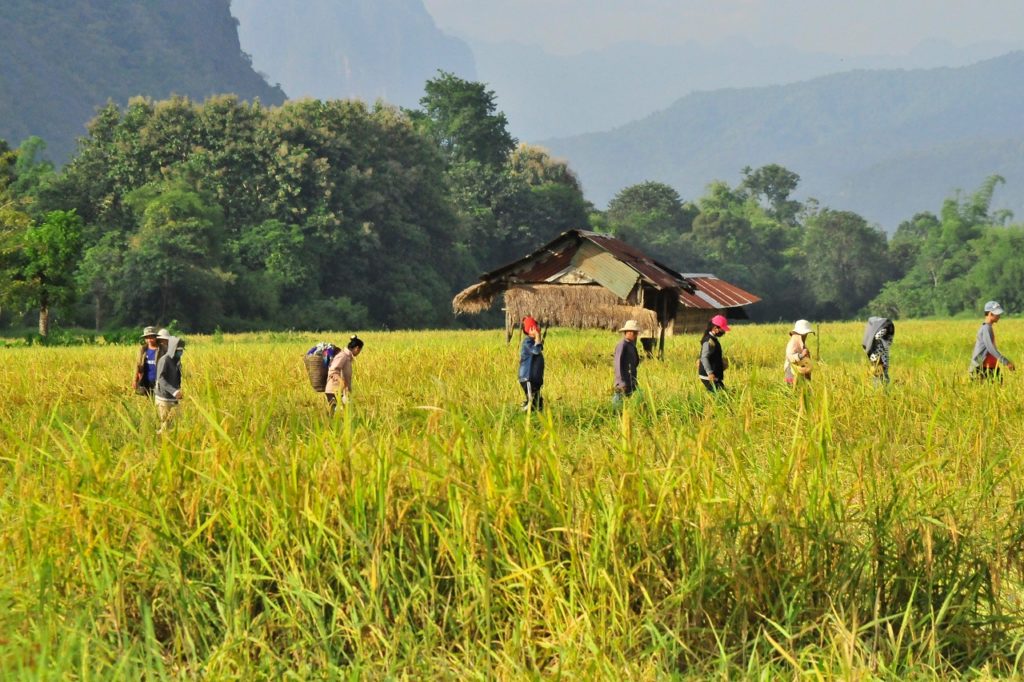Thailand is in the process of amending its legislation to allow all citizens to grow up to six cannabis plants. Anutin Charnvirakul, a Thai politician, assured citizens that any well-grown cannabis plant could be sold to the government for $2,225. An entire household could earn $13,350 on the sale of the allocation of six cannabis plants, which is more than the average salary in Thailand.
Citizens will be allowed to grow cannabis in Thailand


The government is allowing citizens to grow cannabis in Thailand.
Thailand is in the process of amending its legislation to allow all citizens to grow up to six cannabis plants and sell their own crops to the government, which will sell them for medical purposes.
You can find more information about this industry and other important news in the cannabis sector in the Hemp.im app. This app collects the latest cannabis investing news in bite-sized chunks that are easy to digest.
The legalities of cannabis in Thailand
Recreational cannabis in Thailand remains illegal, with punishments including imprisonment. Cannabis enthusiasts hope the medical cannabis boom will eventually result in more lax laws on recreational use.
“We are in the process of amending the law to allow citizens to freely use cannabis for medical purposes,” said Health Minister Anutin Charnvirakul in Bangkok recently. “We believe that cannabis will be one of the main agricultural products for Thai households. We are speeding up the change in legislation, but this is a process that takes time.”
“In the near future, families will be able to plant cannabis in their home gardens like any other plant,” Anutin mentioned in September.
The growing cannabis industry in Thailand
In addition to historical home-growing regulations, Thailand has built what the government calls the “largest industrial-scale cannabis plant in Southeast Asia.”
On Sept. 2, scientists from Maejo University planted 12,000 new cannabis seeds in Chiang Mai in northern Thailand.


According to the Asia Times, the cannabis seeds were supplied by the government’s Medical Service Department. Officials expect the plants to be harvested within six months.
The promising shoots are being grown inside a newly built 3,040-square meter greenhouse with controls for temperature, moisture and light. Officials expect the plants will produce medical-grade cannabis flowers and buds within six months.
The Government Pharmaceutical Organization (GPO) has great expectations for growing cannabis. The GPO hopes that the harvest will allow the production of one million bottles of hemp oil by February 2020.
Thai universities may start developing their own strains
“The university will be a place where ordinary people can learn how to plant and grow quality cannabis. Cannabis is not a matter of politics; it is a product that can have positive effects on people’s health,” Anutin said.
Maejo University has reportedly developed a cannabis strain called “Issara” (independence), which has equal levels of cannabidiol (CBD) and tetrahydrocannabinol (THC).
The university’s researchers say that future strains will offer differing levels of CBD and THC to treat illnesses and symptoms requiring other ratios. Officials hope more Thai universities, labs, agricultural experts and botanists will produce additional local strains.
Cannabis in Thailand may be more profitable than rice


Anutin predicts that fully legalized cannabis will be a more significant and profitable crop for Thailand than rice, sugar cane, tapioca, rubber or other products rooted in the country’s agricultural economy.
At least 13 hospitals have reportedly received licenses to dispense cannabis oil extracts to patients with prescriptions. A classroom inside a hospital recently began teaching the public how to grow medical-grade cannabis.
He also assured citizens that any well-grown cannabis plant could be sold to the government for $2,225. An entire household could earn $13,350 on the sale of the entire allocation of six cannabis plants.
This is quite a tempting prospect, given that the average salary in Thailand is reportedly $8,200 per year.
__
(Featured image by Evan Krause via Unsplash)
DISCLAIMER: This article was written by a third party contributor and does not reflect the opinion of Hemp.im, its management, staff or its associates. Please review our disclaimer for more information.
This article may include forward-looking statements. These forward-looking statements generally are identified by the words “believe,” “project,” “estimate,” “become,” “plan,” “will,” and similar expressions. These forward-looking statements involve known and unknown risks as well as uncertainties, including those discussed in the following cautionary statements and elsewhere in this article and on this site. Although the Company may believe that its expectations are based on reasonable assumptions, the actual results that the Company may achieve may differ materially from any forward-looking statements, which reflect the opinions of the management of the Company only as of the date hereof. Additionally, please make sure to read these important disclosures.
First published in FaktyKonopne, a third-party contributor translated and adapted the article from the original. In case of discrepancy, the original will prevail.
Although we made reasonable efforts to provide accurate translations, some parts may be incorrect. Hemp.im assumes no responsibility for errors, omissions or ambiguities in the translations provided on this website. Any person or entity relying on translated content does so at their own risk. Hemp.im is not responsible for losses caused by such reliance on the accuracy or reliability of translated information. If you wish to report an error or inaccuracy in the translation, we encourage you to contact us.



Comments are closed for this post.